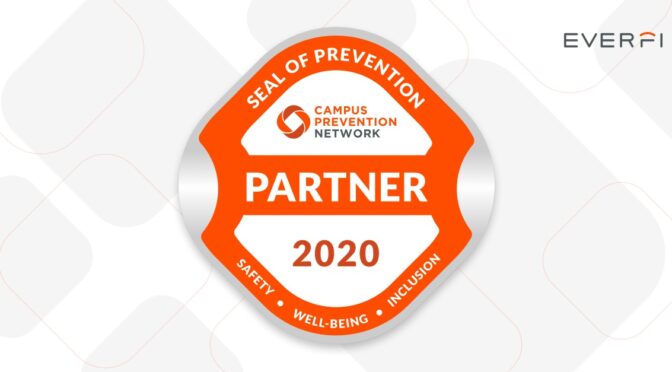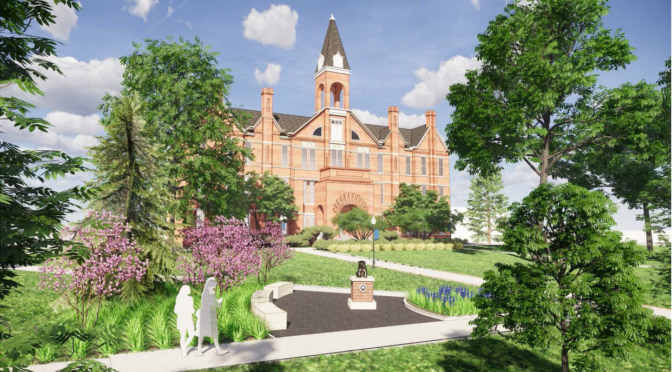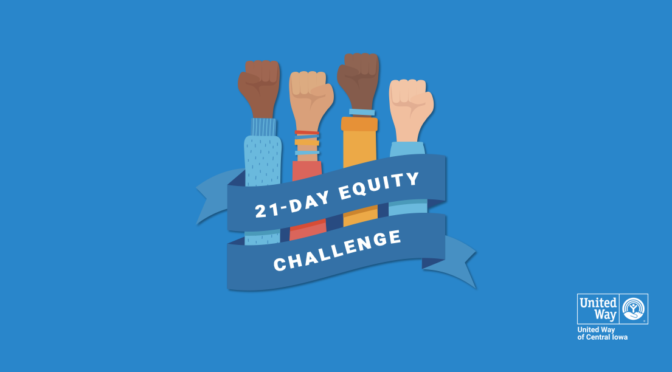On Election Day, Tuesday, Nov. 3, we are all called upon to do our civic duty and vote in our national presidential election. Drake recognizes that this responsibility poses some challenges for employees who are juggling competing personal demands and, depending on where you live, a time commitment that can feel restricting. So, the University is declaring Nov. 3 a meeting-free day to eliminate any time sensitive job responsibilities and give faculty and staff the freedom to take the time to vote without consequence. In the coming days, watch for an organization-wide calendar hold to be sent for the entire day, restricting any conflicting meetings to be scheduled and serve as a reminder for us all to make our vote count.
All posts by Ashton Hockman
Campus Climate virtual town halls Nov. 9 and 10
The Campus Climate virtual town halls have been rescheduled for Nov. 9 and Nov. 10 at 12 p.m. and will be held virtually. Faculty, staff, and students are encouraged to register in advance.
During the town halls, the Office of Equity and Inclusion will review the findings from the 2019 Campus Climate Assessment.
Following the town halls, several roundtable discussions will be held in December to develop next steps.
The 2020 Iowa Constitution Lecture: “Is Iowa a Liberal Democracy?”
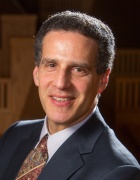
The Drake University Constitutional Law Center is pleased to announce James A. Gardner as presenter of the 2020 Judge James Grant Iowa Constitution Lecture. His lecture titled “Is Iowa a Liberal Democracy?” will be delivered virtually on Thursday, Oct. 29, at 3 p.m.
Gardner is the Bridget and Thomas Black SUNY Distinguished Professor at SUNY Buffalo Law School. He is a highly regarded specialist in constitutional and election law. He is a top national authority on American state constitutional law, as well as the principles of federalism upon which it is built. He is a prolific scholar who has published six books, as well as numerous book chapters, articles and review essays. Gardner recently was recognized as one of the 10 most frequently cited scholars in the field of election law by the influential Election Law blog.
The Drake Constitutional Law Center initiated the Judge James Grant Iowa Constitution Lecture Series in 2012 to feature prominent experts on the topic of the Iowa Constitution. Judge James Grant participated in drafting the Iowa Constitution and was known for his public service, integrity, and dedication to the law. The lecture series is made possible by the generous gifts of Patrick Grant, LW’76, and the Grant family.
— Theresa Howard, Law School
With a lasting legacy, Diane Caldbeck to retire after 31 years
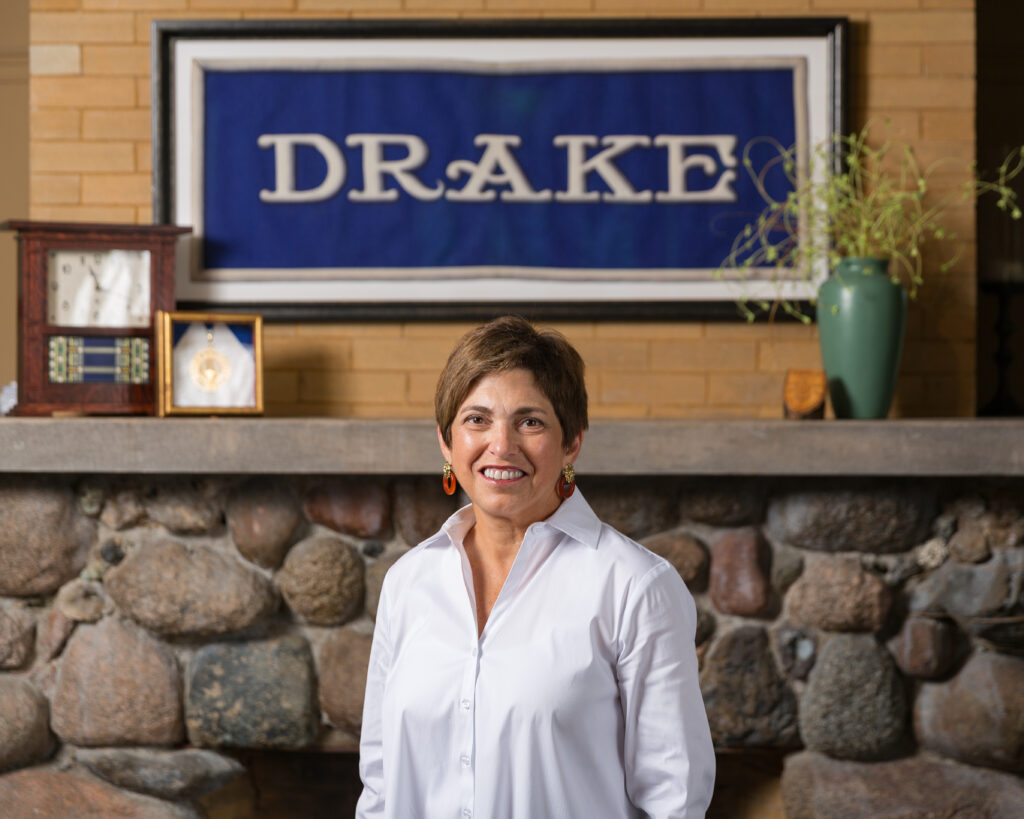
With more than 31 years of service to her alma mater, Diane Caldbeck, ED ‘72, associate vice president for University Advancement, will retire on Dec. 31. Diane came to Drake to lead the Alumni Relations team and has never stopped building relationships and advocating to advance the mission of Drake University. Over the years, Diane became instrumental in Drake’s fundraising success.
Chair of Drake’s Board of Trustees, and long-time friend, Peggy Fisher, said of Diane at the October Board meeting, “My nickname for Diane is “relentless,” but relentless in a good way! I don’t think I’ve ever had the guts to say no when she’s asked me for a gift. In fact, I’m not sure she’s ever even “asked” — she just tells me what she wants me to do!”
Diane’s legacy expands well beyond her professional representation to Drake. Diane married Drake graduate Bill Caldbeck, and their three children—Kelly, Peter, and Megan—all graduated from the University. As a family they have been actively involved, including their children establishing an endowed fund in Diane’s honor titled “The Caldbeck Challenge.” Earnings from the fund support fostering a culture of philanthropy among our students.
Diane’s legacy is as big as the University itself. She has done what we all hope to in life; make a profound and positive difference. All in University Advancement and throughout the Drake community celebrate, with Diane, her upcoming retirement.
— John Smith, University Advancement
Drake receives Campus Prevention Network Seal of Prevention
Drake has been named a recipient of the Campus Prevention Network (CPN) Seal of Prevention. Presented by EVERFI and Parchment, the CPN Seal of Prevention is awarded to institutions of higher education that have demonstrated a commitment to digital prevention programs tied to student safety, well-being, and inclusion.
Each recipient of the CPN Seal of Prevention has taken action to create a safer, more inclusive campus through comprehensive, evidence-based digital prevention education on issues such as sexual assault, alcohol misuse, mental health, and discrimination.
“It is extremely exciting for Drake to be recognized for our continued commitment to prevention,” said Lynne Cornelius, Drake University violence prevention coordinator. “Drake has made it a priority to have all incoming students participate in a series of online trainings aimed at creating a safe and inclusive campus community. These trainings are foundational to building a shared understanding of the values we embrace at Drake and our community expectations.”
The criteria for the CPN Seal of Prevention is based on the Principles of Effective Prevention Programs published by Nation, et al. (2003). View a full list of the 2020 recipients of the CPN Seal of Prevention and more information on the awards.
United Way Campaign: Make your pledge by 3 p.m. Friday
The 2020 United Way Campaign began yesterday (Oct. 12), and as of this morning, we’ve raised $11,945 from 64 donors. Thank you to those who have given, and to those who have yet to give, please consider making a contribution by 3 p.m. Friday, Oct. 16. We need more donations to reach our goal of raising $40,000 from 350 individual participants! If we achieve this goal, President Martin will declare Friday, July 2, 2021, an additional campus holiday. Please refer to the email you received from the United Way for giving instructions. If you have any questions, please email ryan.arnold@drake.edu.
— Ryan Arnold, Community Engagement
Bulldog Plaza dedication
The campus community is invited to attend a dedication event for Bulldog Plaza, the new campus space on the south lawn of Old Main, on Saturday, Oct. 10, at 11 a.m. Please note: This is an outdoor, in-person event. In accordance with Drake University policies, masks are required and social distancing guidelines must be followed.
During the dedication, a statue of retired Live Mascot, Griff I will be unveiled. In addition, there will be a “changing of the harness” ceremony between Griff II and Griff I to formally announce Griff II as Drake’s new Live Mascot.
The addition of the Plaza is owed to the support of Bob, LA’74, and Pam Lees and the Lees family on behalf of three generations of Drake alumni.
The event will also recognize the University Avenue streetscape enhancements made possible through partnership with the City of Des Moines and Des Moines Area Rapid Transit and the support of Stephen, BN’64, and Merrilee Nellis, the Wells Fargo Foundation, and the Polk County Board of Supervisors.
Event Details
When: Saturday, October 10, 11 a.m.
Location: Bulldog Plaza, on the south lawn of Old Main
Address: 2507 University Ave., Des Moines, Iowa, 50311
Parking: Kinne Development Center Lot or Dial Center Lot (map)
— Emily Weaver, University Advancement
Join the 21-Day Equity Challenge
All students, faculty, and staff are encouraged to register for the 21-Day Equity Challenge, a program launched by United Way of Central Iowa and several partner organizations to help the greater Des Moines community develop a deeper understanding of how inequity and racism affect our lives.
After registering online, participants will receive an email each weekday, from Oct. 5 through Nov. 2, with readings, videos, podcasts, and ways to take action. Each day will feature a different topic, and participants will be challenged to partake in at least one of the four or five pieces of content they receive.
Participation is free and registrants can participate solo or as a part of a group. Topics will include understanding privilege, housing and redlining, justice system inequities, allyship, and many more. The content for each topic has been curated by an advisory committee of local experts and leaders on racism and equity issues in our community. Drake is a supporting organization of the 21-Day Equity Challenge and hopes all campus community members will partake in this shared learning opportunity.
— Erin Lain, Associate Provost, Campus Equity & Inclusion
Voices of Drake: Marina Verlengia, director new student and parent programs
This Q&A is part of the story series Voices of Drake that highlights the diversity, ambition, and passion of the incredible people who make up our campus community. This week’s story is designed to celebrate and shine light on Latinx Heritage Month, Sept. 15–Oct. 15. It spotlights Marina Verlengia, director of new student and parent programs.
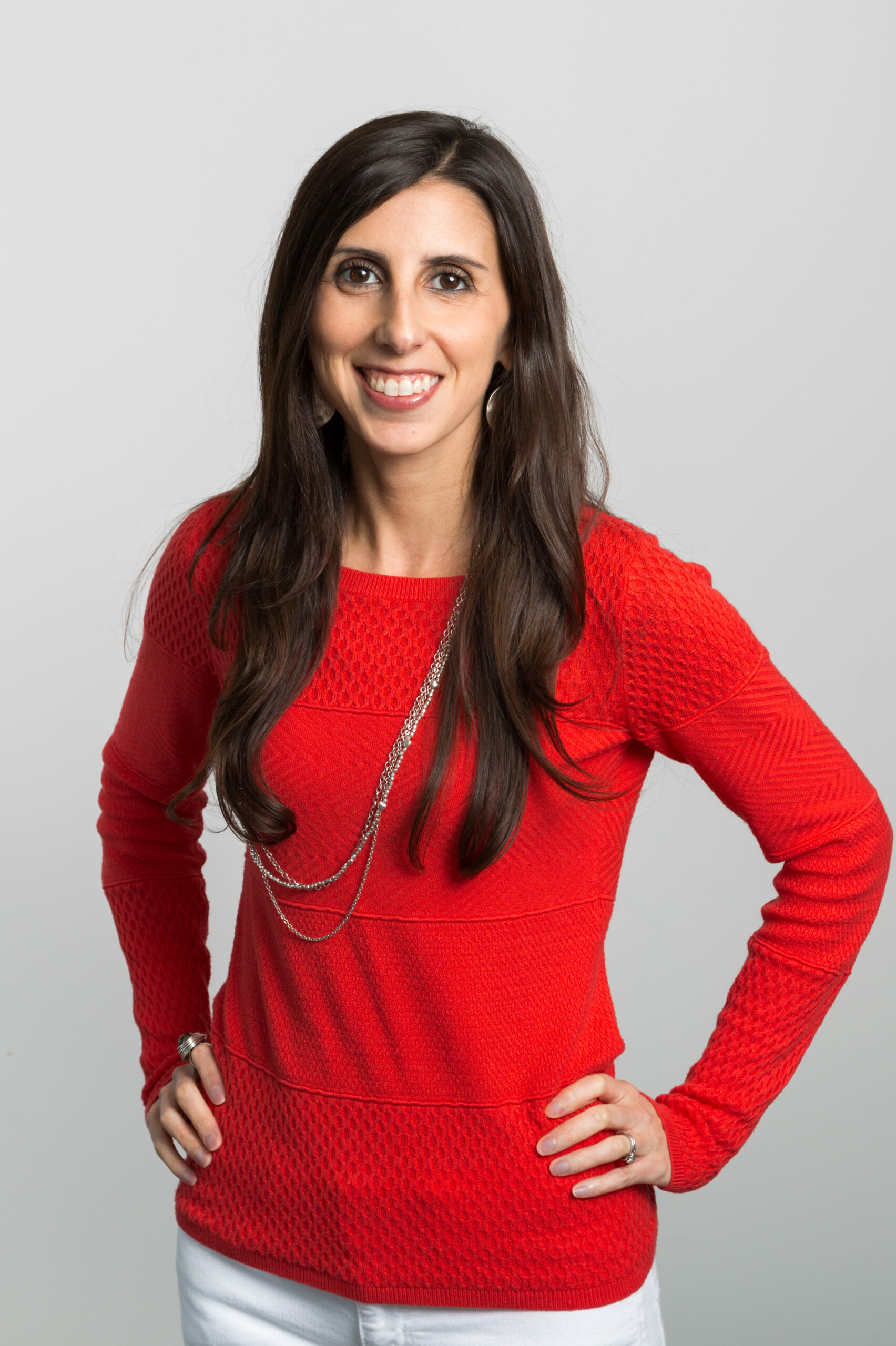
Tell us a little about yourself.
I am a first generation American, born and raised in south Florida. My parents came to the U.S. from Venezuela to go to college and always planned to return home after graduation. My dad received a good job opportunity so they kept extending their time here. Eventually they had children and settled down in south Florida. I am the oldest of four. Growing up, we only spoke Spanish in our home and spent our summers in Venezuela visiting our extended family. For a long time, my parents were the only ones living in the U.S. Over time and as things have gotten worse in Venezuela, we have started to have more family members move to Florida.
Tell us about your education. Where did you go to school and what did you study?
I went to the University of Central Florida for both undergraduate and graduate school. I got my undergraduate degree in marketing and have two master’s in Business Administration and Sports Business Management.
How long have you been in the Drake campus community? What is your role at Drake?
It is hard to believe, but I have been at Drake almost six years. I am the director of new student and parent programs.
You are the organizer for Drake’s Latinx Faculty/Staff Affinity Group. What is that and how has it been important to you in your time at Drake?
The Latinx affinity group is a space for Latinx faculty/staff to get to know one another socially and provide support for each other. There aren’t many Latinx faculty or staff on campus so it has been really nice to connect with areas across campus and meet other Latinx faculty and staff. Prior to this group, I didn’t really know many other Latinx staff or faculty.
These aren’t normal times, but in normal times, what kinds of things does the Latinx Affinity Group do?
We have created a great partnership with La Fuerza Latina student organization and did a few get togethers with these students in La Casa. It has been a great way for students to also connect to Latinx faculty and staff. One of our gatherings was a potluck in which people brought traditional Latin dishes to share. We enjoyed great food and conversation!
How long have you been at Drake? What is your favorite thing about working at Drake so far?
I have been at Drake almost six years. I love working with students and introducing them to our community. We have a really amazing, supportive community. We really do have an “all in this together” spirit. I feel a lot of support from my colleagues, everyone is always willing to lend a helping hand.
What is your favorite thing about the Drake neighborhood?
I love walking in the Drake neighborhood. Since my start at Drake, I have always enjoyed walks in the neighborhood. When on campus, I try to go out during the lunch hour a few times a week.
Who has been the biggest influence in your life and what lessons did that person teach you?
My parents—they came to this country not knowing anyone or speaking the language for a better education. They created an amazing life for themselves and their children. Our culture and heritage were always a huge part of our lives. They made sure we knew the language, music, food, traditions, and that we were proud of it. They faced a lot of challenges and adversity along the way but always put family first. I appreciate everything they did for us and the opportunities provided to us because they moved to the U.S.
How do you like to spend your free-time? Tell us about your hobbies and interests.
During normal times, I love to travel! I love spending time with friends and family, going for bike rides on the local bike trails, going for walks, binge watching a good tv show, and have come to really enjoy puzzles this year.
This year is a year like no other. What advice would you like to give to a first-year student at Drake?
During our Welcome to the Team event during Welcome Week, Coach Jennie Baranczyk gave a great speech with a special message that stuck with me. She spoke about being thankful for what we have this year and what we are able to do. It is so easy to focus on everything that has been taken away from us and all the things we can’t do in 2020. It is important to also think about everything we can do and to be thankful to be part of this great community. Things will get better and slowly we will return to normal. We are all in this together!
United Way campaign kicks off Oct. 12
The 2020 United Way of Central Iowa Campaign will be held next week—mark your calendars and watch your email for more information! There will not be an in-person kick-off event this year, nor will we have campaign captains. However, your philanthropic donations are needed this year more than ever to provide relief to those left most vulnerable by the pandemic. If you are able, please consider making a contribution.
— Ryan Arnold, director, Community Engagement

